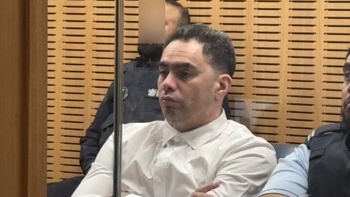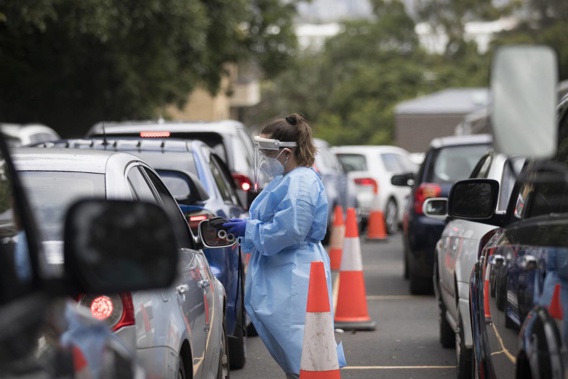
New South Wales has recorded 25,870 new Covid-19 cases from PCR tests on Tuesday, as well as eleven more deaths.
There are now 2186 people hospitalised with the virus in NSW – that level of hospitalisation is almost double that of the peak of the Delta wave last year. There are 170 patients in intensive care, up from 159 on Monday.
There were 71,325 PCR tests processed in the latest reporting period, a drop on the daily volume of recent weeks as people shift to rapid antigen (RAT) testing.
The state is set to start tallying positive RATs from Wednesday, with people told to log their results through Service NSW. The government intends to make RAT reporting mandatory.
Meanwhile, coronavirus patients in NSW's under-pressure public hospitals are being moved to private facilities in order to free up beds, as infections climb and the medical workforce struggles with critical shortages.
NSW Health deputy secretary Susan Pearce said on Monday the department had reverted to patient management strategies it used during Sydney's Delta outbreak in 2021 to try to reduce the strain on hospitals.
She said the need to move patients should not be seen as a "failure" of the public hospital system and that it was a "pre-emptive and proactive" measure to help it manage.
Pearce said she wasn't prepared to give a breakdown of every hospital but the number of patients that had been moved were still "in the 10s and not the 100s at this stage".
"The reduction in elective surgery means the capacity in our hospitals and in private hospitals exists, so it's a sensible approach to move people rather than waiting until the hospital exceeds its capacity," she said.
NSW has suspended non-urgent elective surgery – as have Victoria and Queensland – in a bid to free up healthcare resources as coronavirus cases continue to climb.
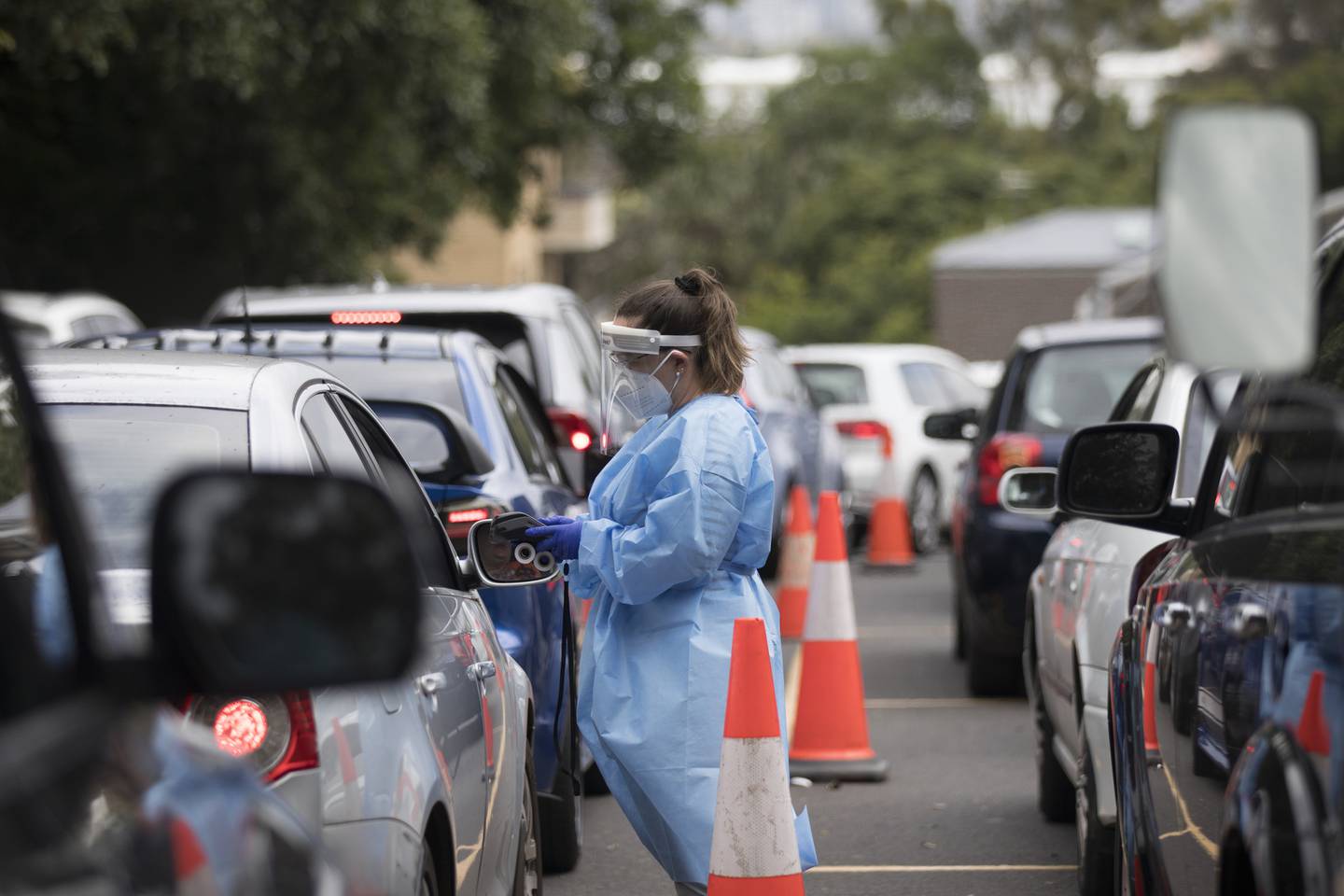
A healthcare worker screens a member of the public at a drive-thru Covid-19 testing site in Sydney, Australia. Photo / AP
NSW Deputy Premier Paul Toole, who is isolating at home after contracting Covid, said the private hospital sector could ease the pressure on the public system.
"We have actually invested heavily in the health system, we have resources there to be able to cope with the number of cases arising," he said.
"They are making sure some of those patients are being moved from the public system across to the private system, to be able to alleviate some of the pressure on the public system but also support those staff."
New infections in NSW are expected to peak in the third or fourth week of January before they begin to decline next month, according to government modelling.
Change to isolation requirements
A major change to how Australia manages Covid close contacts has been labelled dangerous by the head of the Australian Council of Trade Unions.
On Monday, the seven-day isolation period for close contacts was scrapped for workers in critical supply chain roles.
The change came less than two weeks after national cabinet agreed to relax the definition of a close contact. Only people who have spent more than four hours in a household setting, and household contacts of a positive case would be required to quarantine.
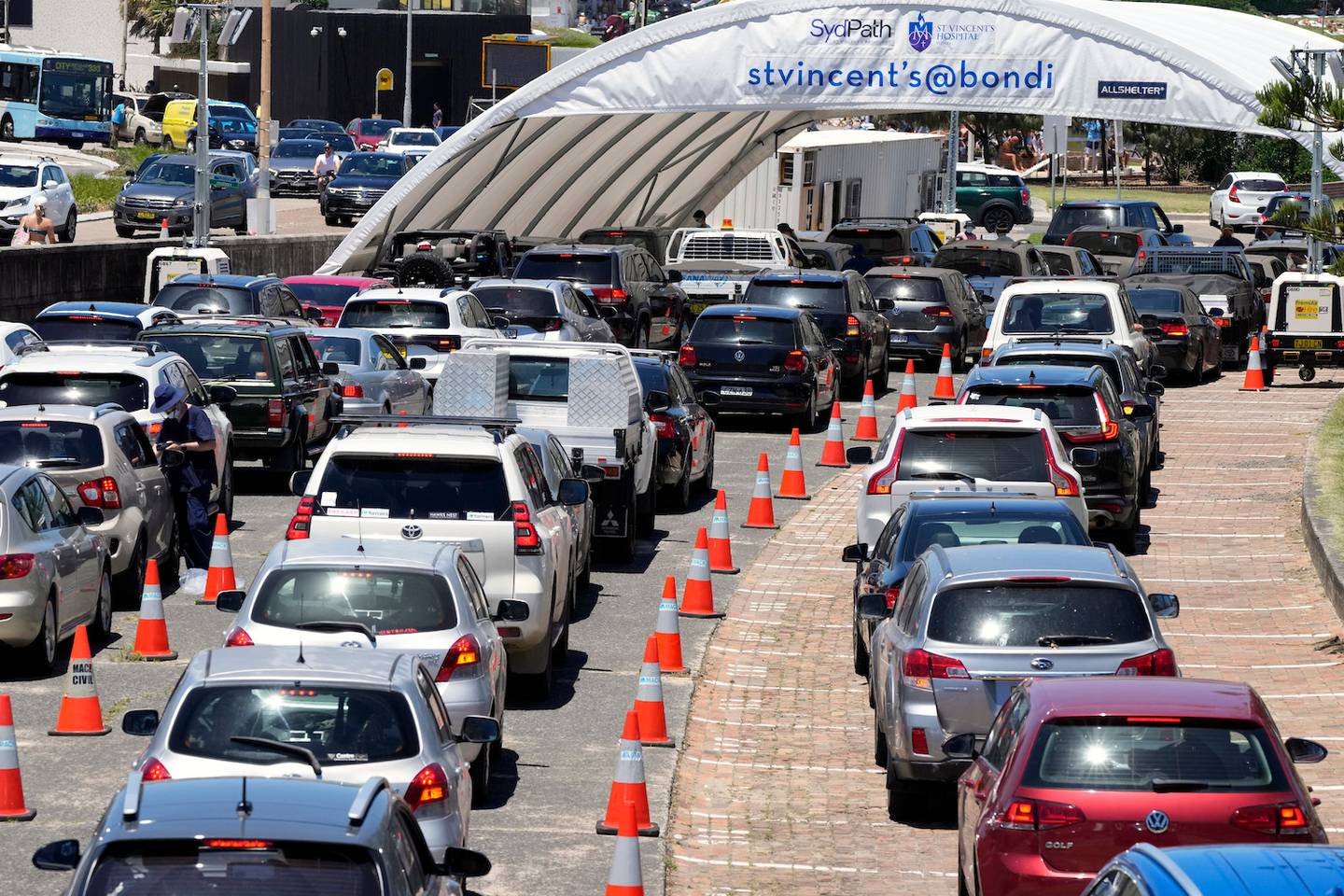
Cars line up at a drive-through Covid-19 testing clinic at Bondi Beach in Sydney, NSW. Photo / AP
Speaking with ABC News, ACTU Secretary Sally McManus said the change put the health and welfare of workers at risk.
"A household close contact is now four hours, but working people might be spending eight hours with someone who is Covid-positive and they are no longer considered a close contact, which is just really crazy," McManus said.
Overnight, McManus wrote to Australian Prime Minister Scott Morrison, requesting an urgent meeting as exhausted essential workers battle staff and supply chain shortages.
In her letter, the ACTU made a list of demands – including restoring pandemic leave for close workplace contacts, providing free rapid antigen tests, and upgrading a mask mandate to N95 or P2 masks.
"The accelerating Omicron outbreak is a national crisis. It calls for national leadership. We need the support of our government to be able to keep the country going and at the same time to keep workers and the community safe," the letter said.
Victoria
Victoria has hit its highest hospitalisation level since the pandemic began as the state's ambulance service comes under severe pressure.
There are now 861 infected people in Victorian hospitals, with 117 in intensive care and 27 on ventilators.
Victoria's previous peak for Covid hospitalisations was 851 in October when the state was battling a surge in Delta infections.
Victoria recorded 37,994 new cases and 13 Covid deaths in the past 24 hours.
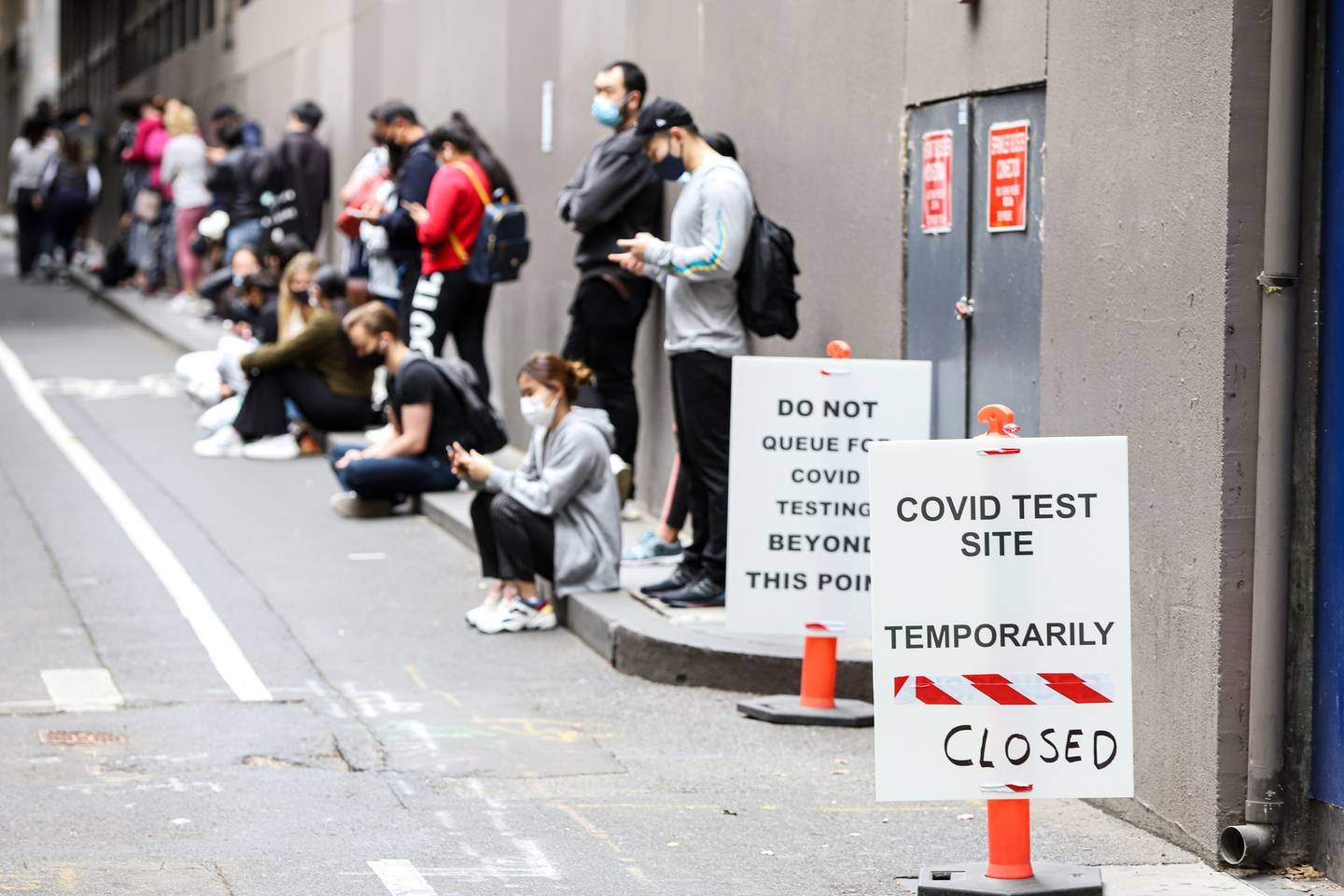
A sign indicates the temporary closure of the Bourke Street Covid-19 testing site as people queue outside in Melbourne, Australia. Photo / Getty Images
More than 93 per cent of eligible Victorians are fully vaccinated and the state has 171,369 active cases.
A total of 59,670 PCR tests were taken on Monday and 16,433 vaccines were administered at state hubs.
It comes as ambulances in Melbourne were forced to declare a code red for the second time in a week as services stretched desperately thin across the city.
"Ambulance Victoria is experiencing an extremely high demand for ambulances in the metropolitan region," a statement said overnight.
"It is likely there will be a delay in an ambulance reaching you. Our priority is to provide care to Victorians who require lifesaving assistance."
A week earlier, the embattled service implemented another code red as Victoria's daily cases skyrocketed past 10,000.
More than 500 Ambulance Victoria staff were furloughed at the time with SES and Lifesaving Victoria used to help keep up with demand.
Take your Radio, Podcasts and Music with you






